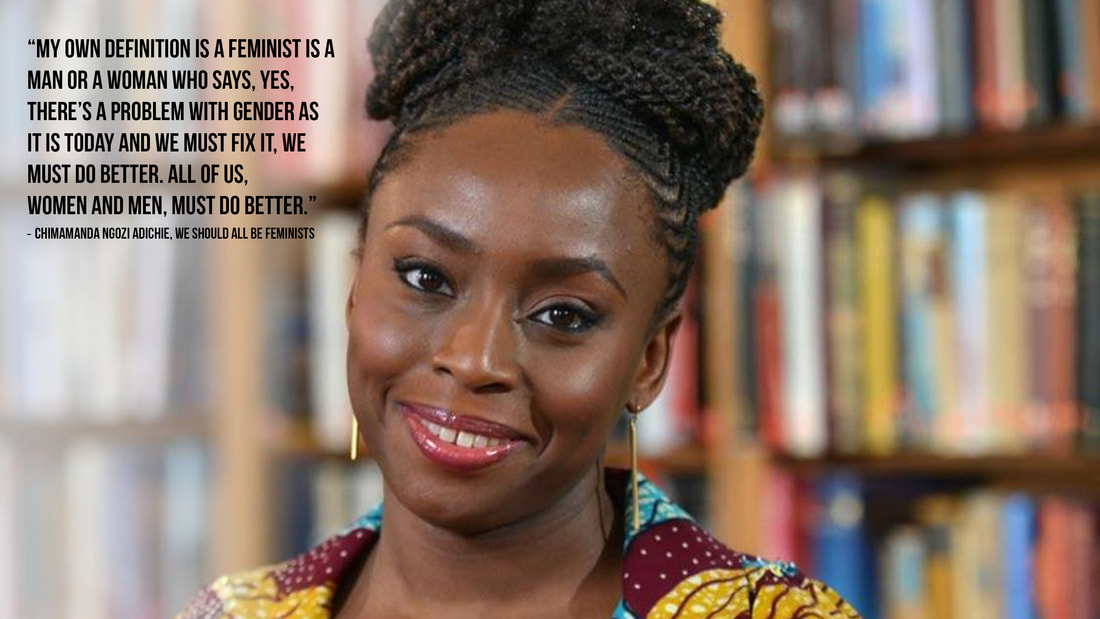|
When we speak about feminism, we are speaking about;
The advocacy of women's rights on the ground of the equality of the sexes. When we speak about black lives matter, we are speaking about; The advocacy against violence and systemic racism toward black people. When we speak about wealth inequality, or social inequality, we are speaking about; The uneven distribution of resources across a given society. It is important that we have language available to discuss the concerns and barriers to opportunity that are faced by different communities around us. We must acknowledge that some people inhabit multiple ‘communities’ and that each one of these groups may face very real and complex barriers to opportunity. By acknowledging these kinds of barriers, without ranking them, we are able to discuss them sensibly, to talk about the most relevant and accessible ways to remove barriers. Some communities have overlapping concerns. Many communities have groups and sub-groups in them that have differing, diverging or independent concerns. It is not to say that any are more or less valid or important, certainly some concerns affect more or less people, but that is not to say that they are less real, or less important. They simply affect people on a smaller scale. In some instances, removing barriers to smaller, granular communities is a very effective way to begin a pathway to improving opportunity for larger, more homogeneous groups of related people. For instance, attending the needs of Refugee South Sundanese Nuer Women in the Western Suburbs of Melbourne, might be an effective way to implement, workshop and develop strategies to assist migrants generally in the future. In other ways, removing barriers to large, homogeneous communities containing many sub-groups is more effective – i.e. universal healthcare for everyone. This is far more effective than trying to assess and determine how each individual should get funded or not funded for healthcare. Chimamanda Ngozi Adiche, in her book We Should All Be Feminists notes that we should not be limited by the stereotypes of individual labels like feminist, but that we should use an understanding of the need to address things like gender inequality through the proper language. This is to say further, that we should take individual responsibility to understand the needs and inhibitors to productive discussions on these issues in all directions. Instead of saying that you believe in human rights (which should begin a conversation about the rights of all humans), to say you are a feminist is to acknowledge “The specific and particular problems of gender.” We wouldn’t tell someone who had bowel cancer to simply say they were ‘sick’, that would not acknowledge the specific and particular nature of their illness. Of course, everyone with bowel cancer is sick, in the same way that feminists can be concerned with human rights for all. The importance of identifying barriers is so that we can address the causes and effects of these inhibitors and remove them. We need to stop comparing and fighting among issues, saying things like “why be a feminist, why not care about all human rights?”, “Why black lives matter? Why not all lives matter?”, “Why are we talking about Indigenous disadvantage, what about the other poor people?”. To name an issue is to have a discussion about that issue. Certainly, there is overlap between issues, but there is nothing less productive than to enter a discussion about the disadvantage experienced by one community, with something that looks like “what about this other community?”. Yes, we can speak about various kinds of disadvantage and inequality, but we must look at each school of difficulty for what it is, not what it is in comparison to other inequalities of opportunity. Looking at how different kinds of disadvantage inter-relate is important, fighting about which kind of disadvantage is more important to talk about at any given moment, is counter-productive and we should probably do it less. Practice understanding, practice learning about experiences different to yours, and as always remember, Just Be Nice. |
Just Be NiceA collection of articles relevant to pursuing the effective execution of altruism in the search for equality of opportunity. Archives
February 2020
Topics
All
|

 RSS Feed
RSS Feed